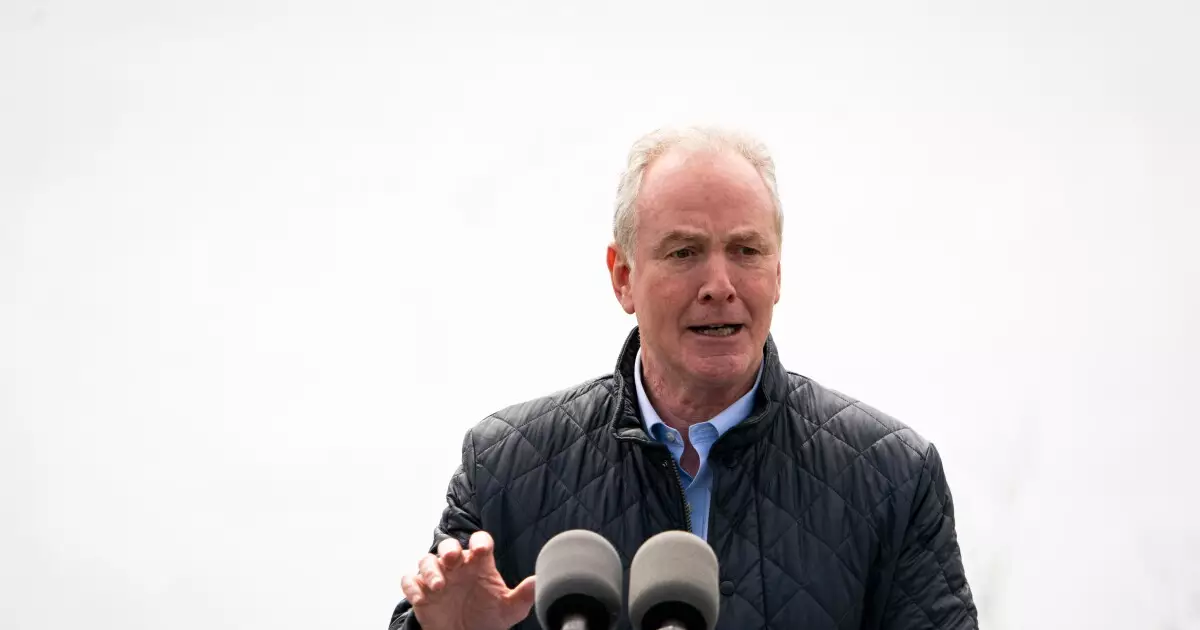In a week characterized by high tension and critical negotiations, Capitol Hill witnessed the passage of a continuing resolution (CR) that is set to fund the government until March 14. This temporary measure, however, has not resolved deeper issues, particularly the looming conflict over the debt ceiling, which promises to precipitate fierce partisan battles. Despite these challenges, there were notable victories for Washington D.C. and Baltimore, which bring both immediate relief and long-term implications for local governance.
The passage of the CR might provide an essential stopgap, but it only addresses the symptoms of a larger malaise afflicting American governance: the inability to reach sustainable agreements on fiscal measures. While Senator Chris Van Hollen heralded the complete federal funding for the reconstruction of the Key Bridge—damaged in a freak accident involving a disabled cargo ship—the broader conversation about financial responsibility remains looming. Critics of the use of taxpayer funds for infrastructure projects, especially when state liabilities exist, question the priorities of Congress and the executive branch. This highlights a significant fracture in American political identity—local needs must be balanced against federal fiscal prudence.
Moreover, the bipartisan excitement surrounding the bridge funding is contradictory to the backdrop of efforts to raise the national debt ceiling. The complexities of these issues reveal an increasingly fractured political landscape where commitments to local projects may be used as bargaining chips against broader budgetary concerns.
Another pivotal element of the recent CR is the transfer of the RFK Stadium site to Washington D.C. from federal control, a move that Congresswoman Eleanor Holmes Norton has termed a “victory for self-determination.” This moment is particularly salient as it comes at a time when the nation’s capital continues to advocate for greater autonomy. The dynamic of representing a district with limited voting power in Congress raises profound questions regarding representation and governance. D.C. citizens are pushing for recognition and control over their own affairs, and this site transfer might symbolize a step in that direction. However, it remains essential to scrutinize whether such victories translate into substantive long-term changes in governance structures.
The discourse surrounding the debt ceiling, intensified by statements from figures like former President Trump, reflects deeper anxieties about fiscal responsibility. The assertion that raising the debt ceiling is a non-negotiable topic signals the underlying tensions between Republican fiscal hawks and the broader legislative priorities of Democrats. The refusal of 38 House Republicans to rally behind the current administration’s proposals only exacerbates this tension, suggesting that a fragmented party system may hinder productive dialogue moving forward.
The notion that such a pivotal discussion could be postponed raises questions about commitment to fiscal sustainability. The ramifications of failing to raise the debt ceiling could ripple through financial markets, sparking volatility and undermining public trust in government financial systems. The implications are severe; when economic stability is in question, the American public’s perception of its government’s effectiveness is put to the test.
The Future of Tax Policy in the U.S.
With the IRS’s increasing scrutiny on tax regulation and the continuing debates about policies stemming from the Tax Cuts and Jobs Act (TCJA), the 119th Congress faces formidable challenges in formulating a coherent tax strategy. As Chairman Jason Smith emphasizes the importance of sustaining the successes of the previous administration’s economic reforms, it becomes vital to explore how these policies can move forward in an evolved legislative landscape. The divisions present in Congress could hinder efforts to extend already established tax cuts, resulting in economic uncertainty for both businesses and households.
While recent developments have yielded some victories for local governance, they also underscore powerful rifts in fiscal policy and governance. What Congress chooses to prioritize, particularly in the context of ongoing debates over the debt ceiling and tax policy, will not only shape immediate governance concerns but also lay the groundwork for the future of American fiscal policy. The coming months will undoubtedly be a litmus test for the effectiveness and resilience of the current political climate.

